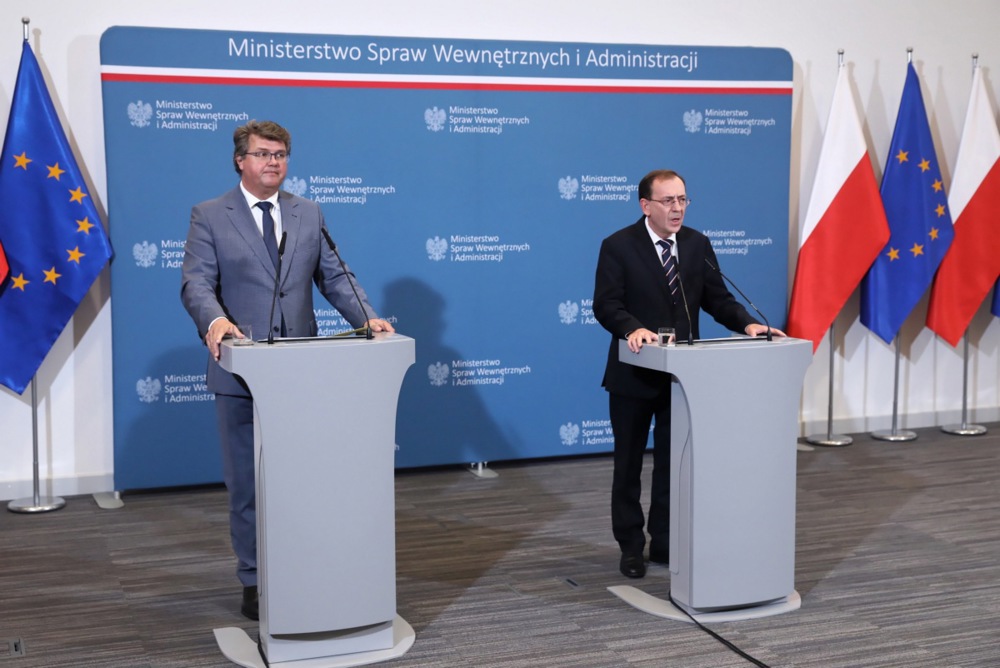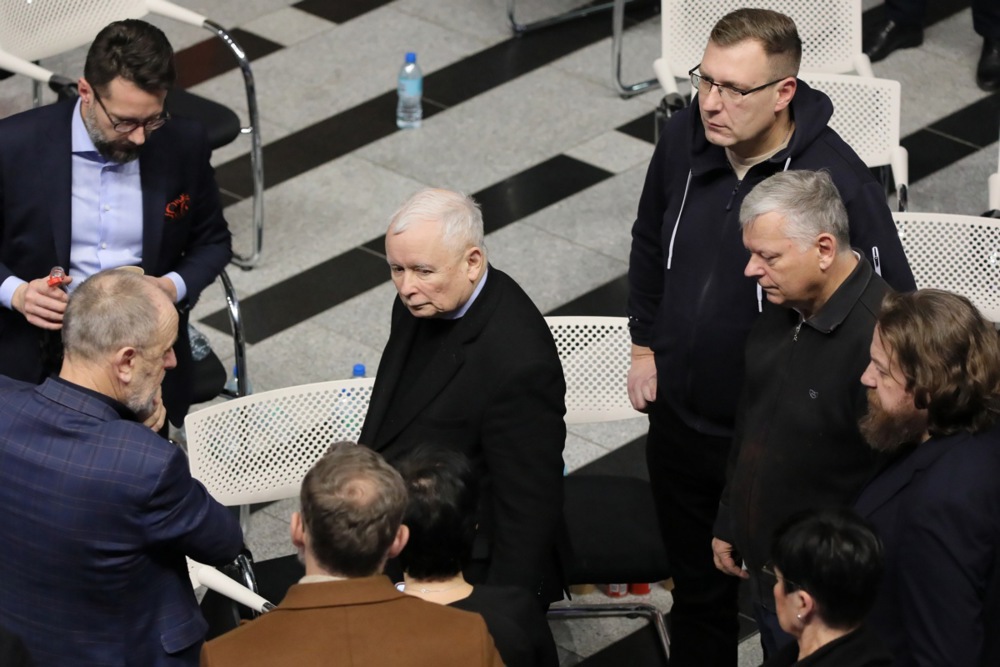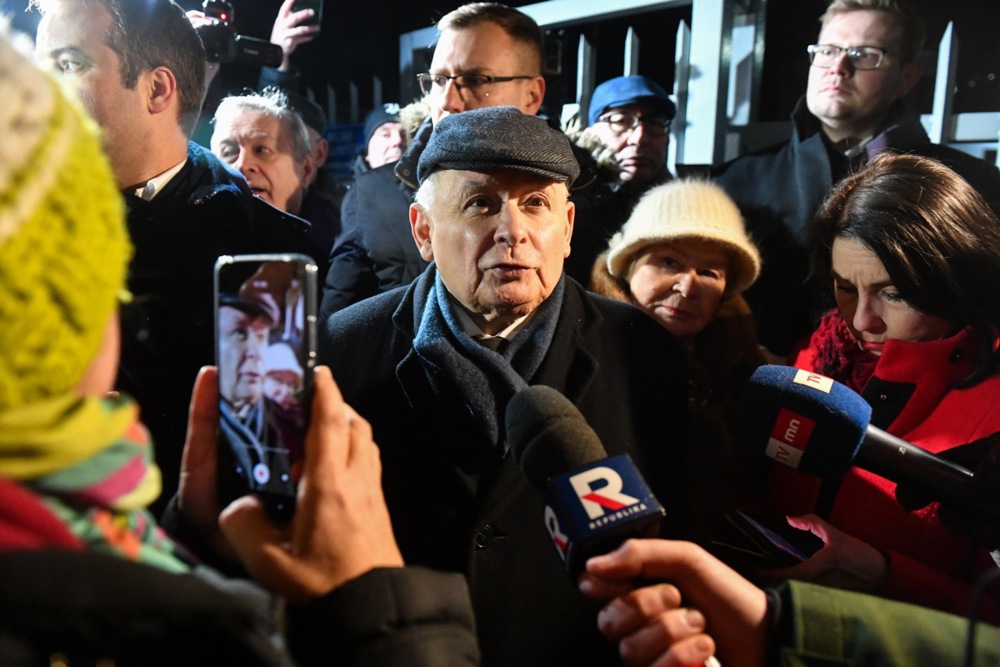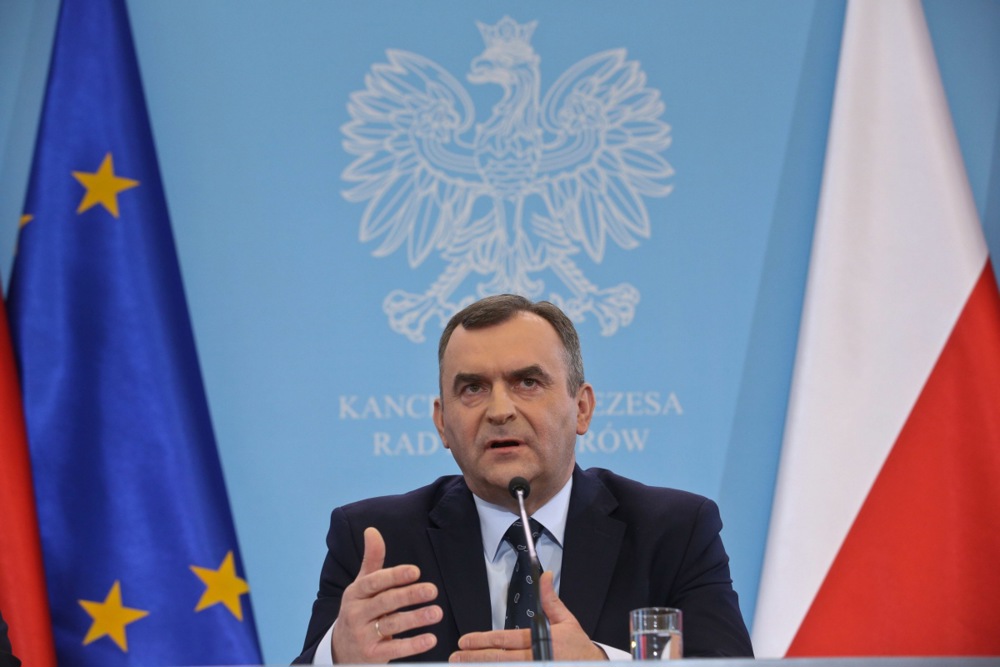Polish President Andrzej Duda is filing for two jailed MPs to be pardoned and has asked justice minister Adam Bodnar to release them from prison pending the completion of what he said was due legal process.
Duda’s announcement came after he met the wives of the two Conservative MPs, Mariusz Kamiński and Maciej Wąsik, who were seized in the Presidential Palace by the police on January 9 and who had gone on hunger strike in protest at their incarceration the following day.
In light of that, deputy justice minister Maria Ejchart said the pair had a right not to eat and drink if they so wished; a controversial statement that opposition supporters felt was reminiscent of late communist government spokesman Jerzy Urban’s declaration in the 1980s over Western sanctions imposed on Poland that “the government will always have enough to eat”.
Duda had maintained that his original pardoning of the MPs in 2015 was valid and that therefore the present Government had no right to jail them.
The Tusk-led Government had decided that as the case was returned to the court of appeal, which chose to uphold the original prison sentence, that was reason enough for the MPs’ incarceration.
Once the court had made that decision, an arrest warrant was issued and Kamiński and Wąsik, who have been stripped off their mandates by pro-Tusk Speaker of the House Szymon Hołownia, were picked up by police.
The pair were detained within 24 hours of it coming into force; they were taken by police from the Palace where they were being hosted by Duda and have been in prison since then.
That incident led to a strong reaction from Duda the following day. He said he “would not rest” until Kamiński and Wąsik were released, pointing to the fact that both the Constitutional Tribunal, or court, and some chambers of the Supreme Court agreed with him that his original pardons were still valid.
Duda added that the incarceration of the two MPs was a political act and that talk of “equality before the law” coming from the Government was “farcical” given practically no one in Poland has been seized and jailed 24 hours after the issuance of a court order.
According to respected constitutional lawyer Ryszard Piotrowski, the action taken by the Government was an “overreach” of “massively excessive proportions” as the police entered the President’s official residence without his permission in pursuit of individuals who were not hiding but had been invited there by the Head of State.
Duda also vouched for the honesty of the two PiS politicians and defended the actions for which they were tried and sentenced as being attempts at combating corruption by State officials.
Kamiński and Wąsik were found to have acted unlawfully during an investigation into a corruption scandal at a time when Kamiński led the anti-corruption agency CBA under a previous PiS government, between 2005 to 2007.
Their actions are alleged to have included ordering illegal surveillance and the production of fake documents.
In the evening of 11 January PiS held a large demonstration outside of Parliament to protest the actions of the Tusk government. The party claimed that around 300,000 attended whereas the Tusk party controlled Warsaw City Hall put the figure at 35,000.
In a separate development, Poland’s Constitutional Tribunal has ruled in favour of the head of the central bank Adam Glapiński by stating he cannot be suspended pending any potential trial by that court.
Poland’s new Government has suggested Glapinski could be brought before the Tribunal of State, the body that passes judgment on alleged wrongdoing by holders of high public office, for putting political interests ahead of the country’s economic interests, adding that would lead to him being suspended.
The Constitutjonal Tribunal has ruled that, although the law allows for the suspension of the head of the central bank by the adoption of a resolution by the Lower House of Parliament, such a move would be inconsistent with the Constitution.
In December last year, Christine Lagarde, the President of the European Central Bank, had warned she would protest any suspension of Glapinski as being an “intolerable” example of political pressure brought against the independence of the Polish central bank.





